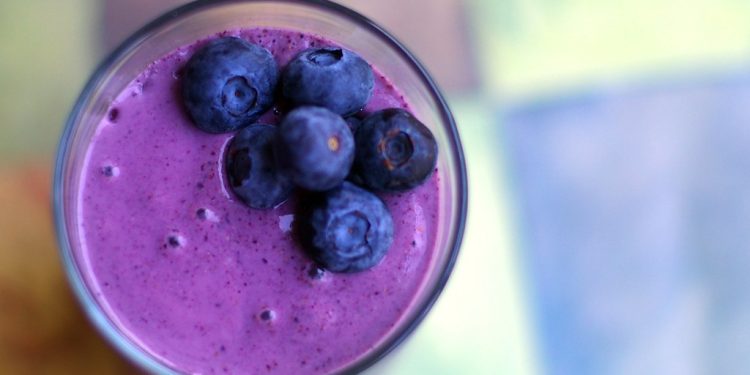When it comes to feeding your baby, nutrition is key to supporting their rapid growth and development. Superfoods are nutrient-dense foods that provide a wide variety of essential vitamins and minerals in just a few bites, making them perfect for your little one. By incorporating superfoods into your baby’s diet, you can help ensure they receive the nutrients needed for healthy development while also establishing a strong foundation for lifelong healthy eating habits. This essay will explore ten superfoods that are great to include in your baby’s diet and discuss their benefits and ways to prepare them.
1. Avocado: The Healthy Fat Superfood
Avocado is a fantastic first food for babies, thanks to its creamy texture and mild flavor. It is rich in healthy fats, particularly omega-3 fatty acids, which are crucial for brain development. Avocado also contains vitamins C, E, and B-6, as well as potassium and fiber, all of which are important for your baby’s health.
To prepare avocado for your baby, simply scoop out the flesh of a ripe avocado and mash it until smooth. You can mix it with breast milk, formula, or another fruit like banana to adjust the consistency or add a little sweetness.
2. Sweet Potato: A Vitamin-Packed Favorite
Sweet potatoes are rich in beta-carotene, which converts to vitamin A and is important for eye health and immune function. They are naturally sweet, making them appealing to babies, and they provide fiber, vitamin C, and potassium.
To prepare, peel and chop a sweet potato, steam or bake it until soft, and blend it until smooth. Sweet potato purée is a versatile food that can be paired with other vegetables or proteins for older babies.
3. Blueberries: A Burst of Antioxidants
Blueberries are rich in antioxidants, particularly vitamin C and anthocyanins, which support the immune system and brain health. These small berries are also a good source of fiber, which aids in digestion.
For young babies, you can steam and blend blueberries into a smooth purée. As your baby gets older, you can mash them or serve them whole (if cut in half) as finger food. Blueberries can also be added to oatmeal or yogurt for a nutrient boost.
4. Spinach: Iron and Calcium for Growing Babies
Spinach is a leafy green vegetable that is packed with iron, calcium, and vitamins A, C, and K. Iron is essential for the production of hemoglobin, which carries oxygen throughout the body, while calcium is crucial for strong bones and teeth.
To introduce spinach to your baby, steam it until wilted and blend it with a little water or breast milk to create a smooth purée. Spinach can also be mixed with other vegetables, like sweet potatoes or carrots, to make a nutrient-packed meal.
5. Greek Yogurt: Protein and Probiotics
Greek yogurt is an excellent source of protein and healthy fats, and it contains probiotics that promote a healthy gut. Probiotics help support your baby’s digestive health and immune system. Greek yogurt also provides calcium, which is essential for bone development.
Choose plain, full-fat Greek yogurt without added sugar. You can serve it on its own or mix it with fruit purées like apple or banana to add natural sweetness. Greek yogurt is also a great way to introduce new textures to your baby.
6. Quinoa: A Complete Protein
Quinoa is a nutritious grain that contains all nine essential amino acids, making it a complete protein. It is also rich in fiber, iron, magnesium, and various B vitamins. Quinoa is a great way to provide your baby with plant-based protein.
To prepare quinoa for your baby, rinse it thoroughly and cook it in water until soft. You can blend it with vegetables or fruits to make it easier for younger babies to eat, or serve it as a textured grain for older babies learning to chew.
7. Chia Seeds: Omega-3 and Fiber Boost
Chia seeds are tiny powerhouses packed with omega-3 fatty acids, fiber, and protein. They are also a good source of calcium and magnesium, which are important for bone health. When mixed with liquid, chia seeds form a gel-like consistency, which can be an interesting texture for babies to explore.
Mix chia seeds with water or milk to create a chia pudding. Let the mixture sit for about 15 minutes until it thickens, then serve it on its own or mixed with fruit purée. Chia seeds can also be added to oatmeal or yogurt for an extra nutrient boost.
8. Broccoli: A Cruciferous Vegetable Rich in Nutrients
Broccoli is a nutrient-rich vegetable that provides vitamins C, K, and folate, as well as fiber and antioxidants. It supports immune function, bone health, and digestion. Broccoli’s slightly bitter taste can help expand your baby’s palate and make them more accepting of different flavors.
To prepare, steam broccoli florets until tender and blend them into a smooth purée. For older babies, you can offer small, soft pieces of broccoli as finger food. Broccoli pairs well with other vegetables and proteins, making it a versatile addition to your baby’s diet.
9. Lentils: Plant-Based Protein and Iron
Lentils are an excellent source of plant-based protein, iron, and fiber, making them a great option for babies. Iron is particularly important for babies around six months of age, as their natural iron stores start to deplete, and lentils can help replenish this nutrient.
Cook lentils until they are soft, then blend them into a purée for younger babies. You can mix lentils with vegetables like carrots or sweet potatoes for added flavor and nutrients. For older babies, lentils can be served as a thicker stew or mixed with rice.
10. Eggs: A Nutrient-Dense Protein Source
Eggs are a great source of high-quality protein, healthy fats, and a variety of vitamins and minerals, including choline, which is important for brain development. Eggs are also rich in vitamin D, which supports bone health.
To introduce eggs to your baby, start with a well-cooked egg yolk mashed with a little breast milk or water. As your baby gets older, you can offer scrambled eggs or omelets with finely chopped vegetables. Always ensure that eggs are thoroughly cooked to reduce the risk of foodborne illness.
Incorporating Superfoods into Your Baby’s Diet
Incorporating these superfoods into your baby’s diet doesn’t have to be complicated. Here are some tips to help you make the most of these nutrient-dense foods:
- Start Simple: When introducing a new superfood, start with small amounts and watch for any signs of allergies or sensitivities. Offer single-ingredient purées at first, then gradually combine them with other foods.
- Mix and Match: Superfoods can be combined to create delicious and nutritious meals for your baby. For example, try mixing avocado with quinoa, or adding blueberries to Greek yogurt. Experiment with different combinations to keep mealtime interesting.
- Make It Fun: Introduce a variety of colors, textures, and flavors to make eating fun for your baby. The more variety they are exposed to, the more likely they will develop a broad palate and be open to trying new foods as they grow.
- Keep It Fresh: Whenever possible, choose fresh, organic versions of these superfoods to ensure your baby gets the maximum nutritional benefit. Avoid added sugars or salt, as babies do not need these extras in their diet.
Building Healthy Habits for Life
Including these ten superfoods in your baby’s diet is a great way to provide them with the nutrients they need for healthy growth and development. By offering a variety of nutrient-dense foods from an early age, you’re helping your baby develop a taste for wholesome, healthy foods that will benefit them throughout their life.
Feeding your baby superfoods is not just about nutrition—it’s about laying the foundation for a lifetime of healthy eating habits. By introducing your baby to a range of flavors and textures, you’re encouraging curiosity and a love of good food that will serve them well in the years to come. Enjoy this exciting journey of discovering new foods with your baby, and take pride in knowing that you are nourishing their body and mind with every bite.













